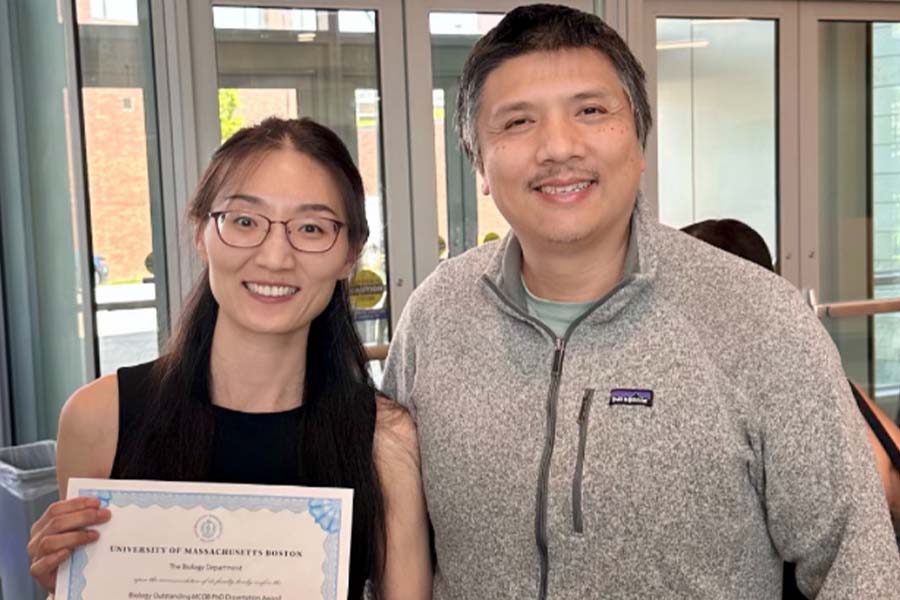- Home
- News
- Recent News
- NCI Grant for Research on Prostate Cancer Therapy Resistance
Biology Professor Changmeng Cai Awarded $2.1 Million NCI Grant for Research on Prostate Cancer Therapy Resistance
Associate Professor of Biology Changmeng Cai has received a five-year, $2.1 million grant from the National Cancer Institute (NCI) to conduct research on how a protective protein, SETD7, can slow the progression of prostate cancer and help curb resistance to hormone therapy.

The project, “Noncanonical activities of SETD7 in preventing prostate cancer progression and therapy resistance,” explores how DNA packaged into cells (chromatin regulation) can cause cancer growth and resistance to hormone therapy. Cai’s research aims to better understand the loss of SETD7, a protein with tumor-suppressing functions, in advanced prostate cancer.
“In prostate cancer, changes in proteins that control how DNA is packaged and accessed can play a major role in how the disease develops and becomes resistant to treatment,” said Cai. “We found that in a portion of advanced prostate cancer that no longer responds to hormone therapy, levels of SETD7 are much lower.”
SETD7 is a typical chromatin modifying protein but also plays another important role by modifying a key cancer-driving protein, FOXA1. “SETD7 normally helps slow down cancer growth by modifying FOXA1 and reducing its cancer-promoting activity,” Cai explained. This is the first study to uncover the unique ability of SETD7 to do this.
Cai’s research helps define the aggressive features of a certain type of prostate cancer that lacks SETD7 and lays the groundwork for new treatments to target this form of the disease.
“The funding will support laboratory research carried out by graduate students and postdoctoral researchers,” said Cai. “It will also fund the testing of new treatments in mouse models of prostate cancer and the analysis of tumor samples from prostate cancer patients.”
Cai’s collaborators include Dr. Kourosh Zarringhalam of UMass Boston’s mathematics department, Dr. Hansen He of the University of Toronto, Dr. Jiaoti Huang of Duke University, and EpiAxis Therapeutics, an Australia-based biotechnology company.
The project builds on the growing body of research on SETD7’s role in cancer. A related study, led by Cai’s former graduate student Zifeng Wang, was published in the Proceedings of the National Academy of Sciences in 2023. Wang, the study’s first author, received several honors at UMass Boston including the Doctoral Research Grant Award, the Doctoral Research Fellowship from the College of Science and Mathematics, and the Department of Biology’s Outstanding PhD Dissertation Award.
As prostate cancer remains one of the most commonly diagnosed cancers in men, the need for new therapeutic treatments is apparent—especially for patients whose disease no longer responds to hormone therapy.
For more information on the National Cancer Institute, visit www.cancer.gov.
